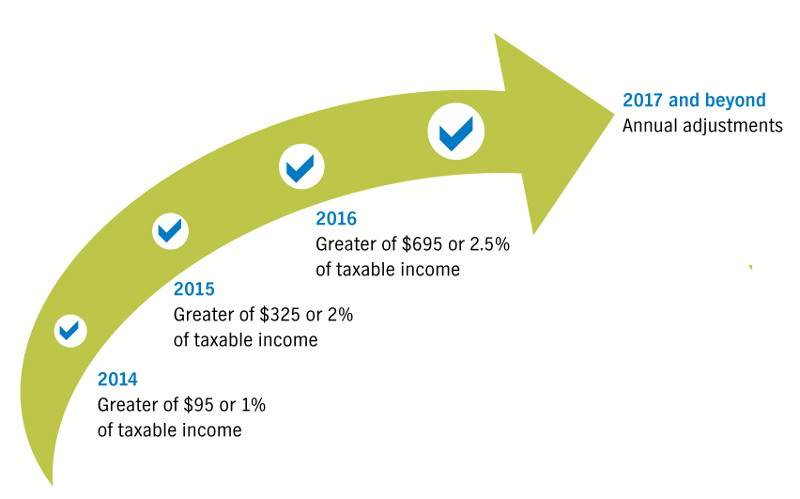The law requires health insurance to be "guarantee issue." That means a person (or family) can't be denied coverage or charged more because of a health condition he or she already has. Individuals not covered by a government health plan have three choices:

An affordable health plan = individual's share of premium is no more than 9.5% of income
Those who don't have access to affordable, minimum essential health coverage can buy a health plan from the exchange and get a credit or subsidy if they meet income requirements. Credits and subsidies help with the cost of premiums and out-of-pocket health care expenses.
Those that meet the income level, can get a tax credit that may be applied to any level exchange plan (bronze, silver, gold or platinum).
The cost-sharing subsidy is available to those who earn up to 250% of federal poverty level and enroll in a silver exchange plan only.
In 2014, legal U.S. citizens who do not have a minimum amount of health coverage will receive a penalty of $95 or 1% of their taxable income, whichever is greater.
Penalties will incrase each year through 2016. In future years, the penalties will adjust annually.
